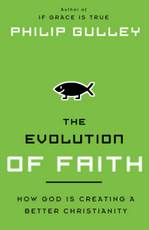I’ve been pondering (much akin to Pinky and the Brain) about the place of the Church in the categorization of orthodoxy and orthopraxy of late. I figured that we’d run out our last theme fairly thoroughly. Anyways, I don’t know exactly what it was that spurred the pondering in me but (must have been something in church) but today I listened to a lecture by Dan Peterson which went over this topic as a part of a broader comparison of Semitic world view tendencies versus Greek world view tendencies and their reflections in Judaism, Christianity, and Islam and I have been inspired to write.
For convenience sake I’ll roughly define our terms. Orthopraxy comes from Greek and is translated as right action. Orthodoxy also comes from the Greek and means right belief. These terms are applied frequently to describe Judaism’s, Christianity’s, and Islam’s main religious focus. Judaism and Islam are primarily orthopraxic in nature. It is much more important that a person do what is right than think what is right.
In Judaism, to be a good Jew (speaking generally of course) one should observe kosher laws, cover ones head when praying if a man or not if a woman, attend synagogue, celebrate the Passover, etc. In Islam, (again, being general, it differs between groups) this involves keeping dietary laws, praying facing Mecca five times a day at prescribed times, attend Mosque, etc.
In Christianity, the focus is much more on what one believes than what one does. At the heart of this for most Christians is a belief in the Trinity and that Jesus is Lord. Catholics and Protestants are and have been at arms over how to understand things like the doctrine of justification, the nature of God, the nature of Jesus suffering, etc.
In both cases the other side is present but is much less dominant. In Islam you must believe that God is One; in Judaism that Moses is God’s prophet; in Christianity one must confess that Jesus is Lord.
So where do we Mormons fit? A quick review of what is important in the Church may bring different ponderers (all us Brains) to different conclusions but one thing we can all probably agree upon is that we are more orthopraxic than most of our fellow Christians. Consider, what do we judge makes a person a good Mormon? This will vary with the person but most Saints will think at first about things like: does he/she do their home/visiting teaching? Do they attend the temple? Keep the Word of Wisdom? Attend church regularly?
How many people’s first reaction would be to say, “does that person believe that Jesus is Lord?” or “were they baptized as a baby and received communion?” These two questions are different. The first is a focus on belief, the second on action. The first I would expect from an Evangelical, the second from a Catholic or certain Protestants.
I would characterize Evangelicals and other Christians who’s focus on confession of Jesus as Lord as the most orthodoxic group. Catholics seem to be more concerned about baptism at birth and perhaps communion. This is fairly orthopraxic really. They also have a very strong emphasis on belief in the Trinity but I’ve met lots of people who don’t “practice” who consider themselves and anyone else who was baptized by the RC as a baby to be Catholic. Perhaps practicing Catholics would be more orthodoxic than I’m giving them credit for.
So, when I compare us Marmons to Catholics (or even Anglicans who seem to be very close substantively) I still see us as more orthopraxic. This question might be better addressed by someone who has spent more time in a place where more people are devoutly Catholic like in Latin America or southern Europe. Are the expectations for public, communal actions as high as the are for us Saints? My instinct is to say close, but not quite.
Are we as orthopraxic as Islam or Judaism? I’m pretty sure the answer to this is no. I characterize this in this way: are Jews or Muslims as likely to argue about their doctrinal equivalents of the three degrees of glory? Do they have as many theological issues of considerable importance as we do? This is all fairly speculative, I know, but my intention is to raise the question generally and not specifically and carefully. And my gut tells me that Mormons have more doctrinal/theological issues than Islam or Judaism does and we spend a lot more time discussing them and put a lot more emphasis on the ones we have than they do.
Here’s the thing, I don’t think that it is necessarily as straightforward as saying that “we’re the middle way, the balance of things compared to two extremes.” We’re fairly orthodoxic (think about all the blacks in the priesthood/Adam-God/Spirit World type discussions we have on the blogs) and we’re fairly orthopraxic. Does one side dominate?
My first reaction would be to say that we are practically (I mean in practice) more orthopraxic than orthodoxic (cf. our what makes a good Mormon a good Mormon question above). As Dan Peterson pointed out today, even the way we speak about ourselves shows leanings to orthopraxy. He said that we speak of people being “active” and “less active” in the Church. He also pointed out that we apply the terms orthodoxic and heretic to ourselves very seldom.
Another thing to note is that our “right actions” aren’t normally done in private, the ones we think about the most are public or communal. Attending church, attending the temple, fufilling a calling or assignment, taking the sacrament, attending Church programs, keeping the Word of Wisdom, etc are all things that we judge people by when considering at a glance whether they are “good Mormons” or not. This is quite similar to Judaism and Islam where the community is very important and one’s actions within the community largely define oneself in the eyes of the community.
But we also have private actions that we don’t get to judge by that we would say are important for being a good member. I’m thinking of Family Home Evening, personal and family prayers and scriptures, personal relationship with God, and to some degree paying tithing. What do we do with this?
It is also unclear what specific beliefs one must have for a person to be considered a Mormon in good standing. Is it as narrow as being able to pass a baptismal interview and/or temple interview? Different people have different ideas about how much one must believe the same as the community. For example, I’m not a proponent of a worldwide Flood or a literal baptism of the earth. Anyone out there going to call me a heretic? Some may be tempted. While I think that ultimately the bare minimum of communal belief is less than many would suspect, it is probably more than we would find in Judaism or Islam.
So now we have a fair amount of necessary communal belief, public action (this can be a killer at times for antisocial folk like myself), and private action necessary for good standing in the LDS Church. How do we define that? Its part orthodoxy, part private orthopraxy, part public orthopraxy. Is it overall right living, a combination of belief and action? What snooty Greek word would we create to describe this lifestyle? Orthozony?
And just because I can’t let sleeping dogs lie, I wonder if this plays a part in our discussions of late about the place of exegesis of the Bible in the average members life and our differing opinions about it. The picture I’ve tried to paint above is made with long wide brush strokes and is by necessity too broad and general. Within the Church I can see that there are some people who are much more orthopraxic than I am and some that are less. There are some who think that we must all believe the same thing more than I do and some (I’m thinking of a name here….) who think less.
If your definition of “right thinking” is communal belief then this argument doesn’t work. But if you mean “correct thinking whether it’s communal or not” then I wonder if this is causing some of the difference of opinion about the important of exegesis. I personally think that right thinking whether it is communal or not is more important than plain old communal belief. This naturally increases my view of how important good, honest, rigorous exegesis is. I don’t want to see and think what everyone else sees and thinks unless I can clearly see that it is the correct way to think. Where I see an understanding of a verse that I deem to be more correct than the general understanding of people is, I take the road less traveled.
This is not to say that there are not necessary communal beliefs or that communal beliefs are bad or anything. They aren’t, in moderation. But when I see the prophets and apostles of God disagreeing with each other on some (even sometimes many) things, I come to the conclusion that the body of belief that is truly communal is limited. This has the effect of acting as an anchor to my soul. It <i>must</i> be believed that The Book of Mormon is the world of God and so I can always trust in this fact and place my faith in the teachings of the Book of Mormon. It does not have to be believed that the Flood was a universal deluge that acted as a baptism of the earth.
So what are your all thoughts? Are we orthozonic? Does some people’s leanings to orthodoxy push them (us) to value exegesis over and above those who don’t? Will we take over the world tonight or not?











